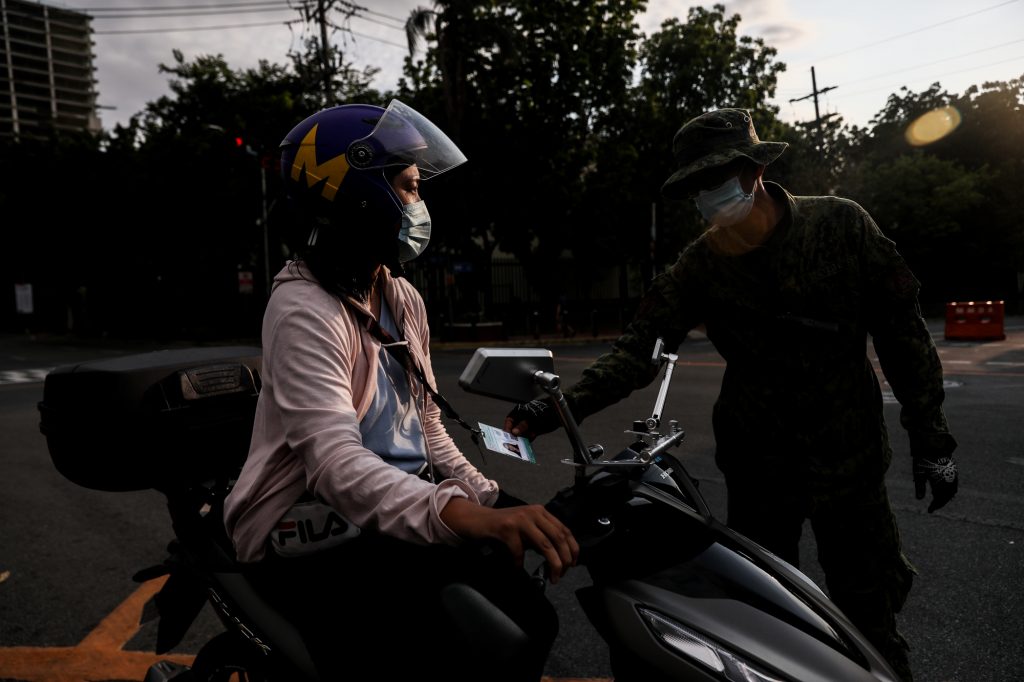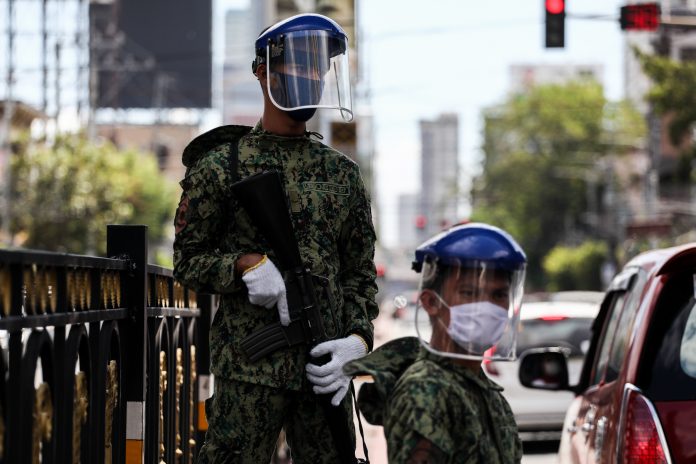The government plan to do a “house-to-house” search for Filipinos afflicted with the new coronavirus disease was met with opposition by human rights activists on Wednesday, July 15.
The National Union of People’s Lawyers said the “unnecessary power” of the police to conduct home visitations to look for patients is “prone to abuse.”
The group said in a statement that the plan reveals the government’s “continuing reliance on police and militaristic approaches to solving a public health emergency.”
The lawyers’ group called on authorities to focus instead on the “find, test, treat and isolate strategy” in dealing with the pandemic instead of arming law enforcers “to sow fear in our communities.”
On Tuesday, July 14, Interior and Local Government Secretary Eduardo Año proposed to send the police to do “house-to-house” search for COVID-19 patients in their homes.
Año, a former military general, said authorities will bring the patients to isolation facilities.
“We are discouraging home quarantine for positive patients, especially if their houses don’t have the capacity for it,” said the government official.
Human rights group Karapatan immediately warned against the proposal, saying it would “further facilitate State terror and police brutality in communities.”
Cristina Palabay, Karapatan secretary general, said the move “could possibly lead” to more human rights violations.
“The past months under lockdown have shown the kind of brazen violence the police could commit even in broad daylight,” she said.
Palabay said the plan to knock on people’s doors “would only intimidate patients and their families.”
She called on the government to instead send health professionals to conduct speedy contract tracing and massive testing.

Faced with mounting criticisms government spokesman Harry Roque clarified on Wednesday, July 15, that there will be no “house-to-house” search for COVID-19 positive patients.
He said it is “unfortunate that critics and detractors … are using the important strategy of contract tracing to vilify the current government.”
He siad COVID-19 patients “will have to be reported by the persons themselves, other members of the household, or their [village] officials.”
He said local health workers will be the ones who will lead the transfer of the patients from their homes to government quarantine facilities.
“Police presence is merely to provide support or assistance in the transport of patients and the implementation of lockdown in the affected area,” said Roque.
He noted that “contract tracing” is a “valid exercise of police power by the State to protect the majority of citizenry from public health threats.”
“Let us not delve into unproductive speculation and instead help our communities to be COVID-19 free,” he added.
“We don’t have a provision for house-to-house,” said Roque. “[The police] will not go house-to-house,” he added.
He called on the public to “not make a big issue out of [the plan], especially when we know that studies already indicate that this virus may have already mutated and it’s even more contagious.”
On July 15, the Health department reported 1,392 new COVID-19 cases, bringing the national tally to 58,850.
Recoveries rose to 20,976, with 517 more survivors, while the death count is now at 1,614, with 11 new deaths.









